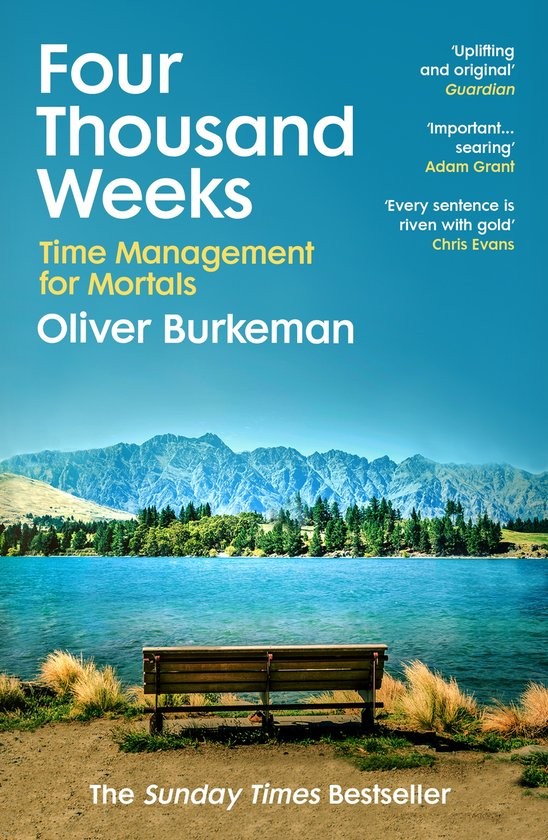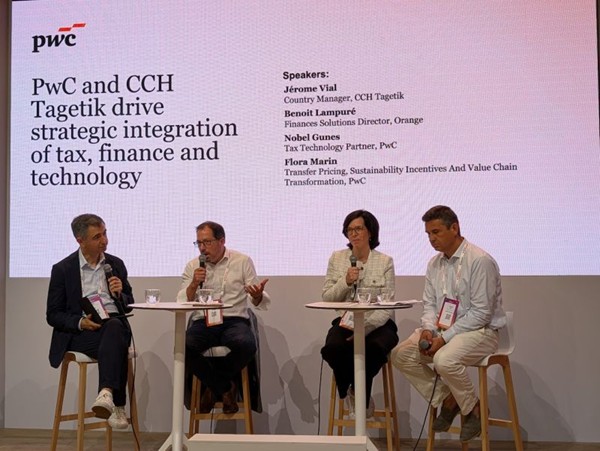Oliver Burkeman’s insightful book, « Four Thousand Weeks, » recently prompted me to pause (and pause again… ) and deeply reconsider something that appears deceptively straightforward: the brevity of our time. The average human lifespan spans roughly four thousand weeks. Stated plainly, this is alarmingly brief and powerful enough to provoke a profound existential reflection, swiftly followed by newfound clarity about our daily choices. I counted weeks in my head. Darn. I do not have 4000 left!
Burkeman, with remarkable clarity and insightful humor, critiques the modern obsession with hyper-productivity. The book does not advocate for squeezing maximum output from every available second. Instead, it challenges readers -als alert leaders- to confront their inherent limitations honestly and accept an empowering truth: doing everything simply isn’t possible, nor is it desirable or wise.

As someone continuously driven by curiosity and (i)(e)ntrepreneurial enthusiasm, I’m often caught between countless opportunities: exciting new technologies, new business possibilities, ambitious projects, learning initiatives, meaningful relationships, and enriching experiences. Burkeman’s perspective forced me to re-evaluate priorities (work ànd life) through the lens of one critical question: Among these many, many opportunities, what genuinely deserves a place within those finite four thousand weeks?
This reflection carries substantial implications for business. In a corporate landscape defined by endless meetings, relentless demands, and constant multitasking, Burkeman’s insights offer transformative guidance. Recognizing our time as finite encourages us to prioritize strategic thinking, innovation, and meaningful engagement over superficial busywork and transactional activities. For businesses, this means investing in high-quality relationships, thoughtful leadership, and genuinely impactful projects rather than succumbing to short-term pressures and reactive decision-making. It calls leaders to foster environments where creativity thrives, decisions are purpose-driven, and productivity aligns closely with genuine impact: time is precious, and time matters.
Moreover, Burkeman’s exploration of our flawed relationship with control resonates profoundly within the business world. Companies often cling to the illusion that meticulous planning and exhaustive productivity can secure predictable outcomes. However, the most significant breakthroughs and innovations frequently emerge from navigating uncertainty, embracing flexibility, and relinquishing the illusion of complete control.
So how can we embrace these limitations and apply them practically? By being selective. By intentionally committing our resources, energy, and attention to actions that align with our deeper values and strategic goals. By having the courage to discard tasks, meetings, and projects that dilute our focus and fail to deliver meaningful outcomes.
For me personally, embracing these principles involves shifting away from superficial hustle and reducing engagements that lack genuine value. Instead, it means pursuing impactful initiatives, investing in deep work, and adopting authentic dialogue within my team. It also involves a conscious effort to remain present and attentive, even when such mindfulness challenges established routines and comfort zones.
« Four Thousand Weeks » invites us into a thoughtful rebellion against the frantic tempo of modern life, nudging us toward deeper meaning and authenticity. It encourages us to savor our existence with intention, humility, and clarity. While we may never control time itself, we unequivocally control our decisions about how to spend it. Four thousand weeks, lived intentionally, offer more than enough space to achieve genuine satisfaction and lasting impact.
I will just refrain focusing on on how many weeks are left…. 😉



